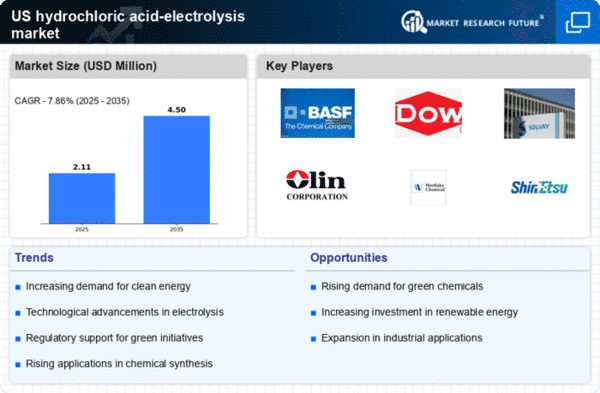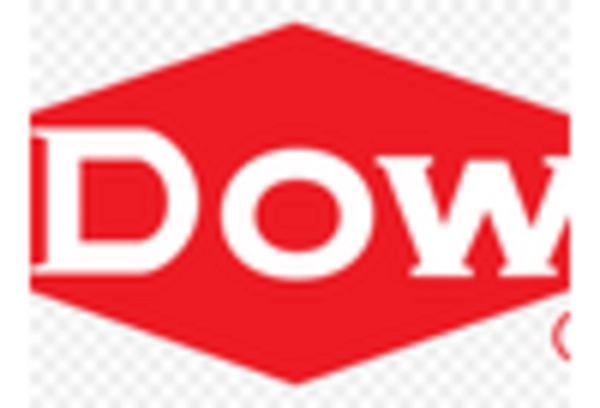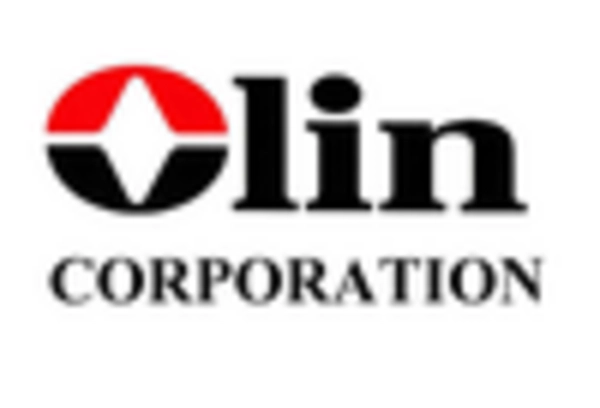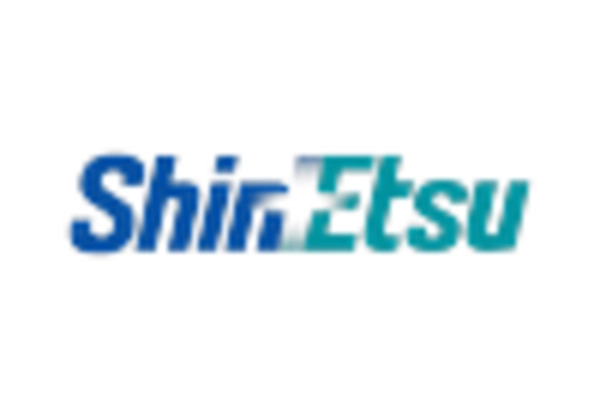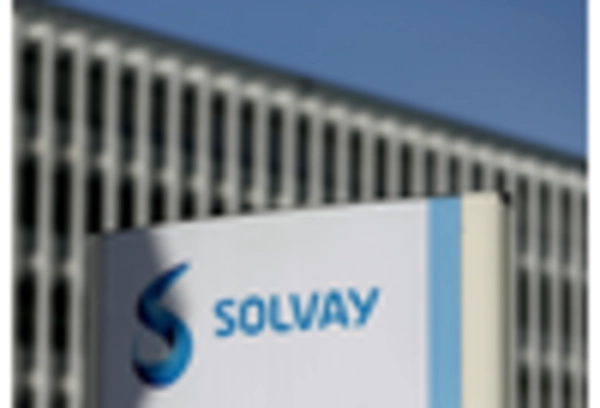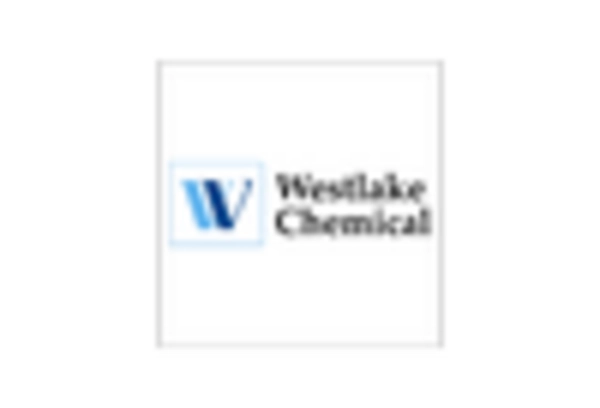Expansion of End-Use Industries
The expansion of end-use industries such as pharmaceuticals, food processing, and water treatment is a critical driver for the hydrochloric acid-electrolysis market. These sectors require hydrochloric acid for various applications, including pH control, cleaning agents, and chemical synthesis. The pharmaceutical industry alone is projected to grow at a CAGR of 5% through 2025, increasing the demand for hydrochloric acid in drug formulation processes. Additionally, the food processing industry is also witnessing growth, with a rising need for food safety and preservation methods. This expansion in end-use industries is likely to bolster the hydrochloric acid-electrolysis market, as it provides essential raw materials for these applications.
Growing Environmental Regulations
The hydrochloric acid-electrolysis market is influenced by the tightening of environmental regulations aimed at reducing industrial emissions and promoting cleaner production methods. In the US, regulatory bodies are increasingly mandating the adoption of technologies that minimize environmental impact. The electrolysis process, which produces hydrochloric acid and chlorine with lower emissions compared to traditional methods, aligns well with these regulations. As industries strive to comply with these standards, the demand for hydrochloric acid-electrolysis is expected to rise. This shift not only supports environmental sustainability but also positions the market as a viable solution for companies looking to enhance their compliance with environmental laws.
Rising Demand for Chlorine Derivatives
The hydrochloric acid-electrolysis market is experiencing a notable increase in demand for chlorine derivatives, which are essential in various industrial applications. Chlorine is a key product derived from the electrolysis of hydrochloric acid, and its applications span across water treatment, pharmaceuticals, and the production of plastics. In the US, the market for chlorine derivatives is projected to grow at a CAGR of approximately 4.5% over the next five years. This growth is driven by the increasing need for effective water purification methods and the rising production of chlorinated compounds. As industries seek to enhance their operational efficiency, the hydrochloric acid-electrolysis market is likely to benefit from this trend, as it provides a sustainable and efficient method for chlorine production.
Technological Innovations in Electrolysis
Technological advancements in electrolysis are significantly shaping the hydrochloric acid-electrolysis market. Innovations such as improved electrode materials and enhanced energy efficiency are making electrolysis processes more viable and cost-effective. In recent years, research has focused on developing new catalysts that can increase the efficiency of hydrochloric acid electrolysis, potentially reducing operational costs by up to 20%. These advancements are likely to attract more players into the market, fostering competition and driving down prices. As technology continues to evolve, the hydrochloric acid-electrolysis market is expected to expand, offering new opportunities for growth and development.
Increased Investment in Chemical Manufacturing
Investment in the chemical manufacturing sector is a significant driver for the hydrochloric acid-electrolysis market. The US government has been promoting initiatives to bolster domestic manufacturing capabilities, which includes the production of chemicals through electrolysis processes. In 2025, the chemical manufacturing industry in the US is expected to reach a valuation of over $800 billion, with a substantial portion allocated to innovative production methods. This trend indicates a shift towards more sustainable and efficient chemical production, where hydrochloric acid-electrolysis plays a crucial role. The market is likely to see increased funding and support for research and development, enhancing the overall growth potential of the hydrochloric acid-electrolysis market.


